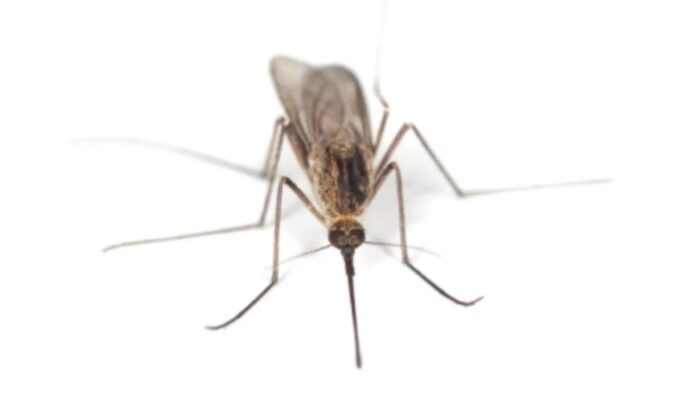Over the festive season and summer months, opportunities for alcohol consumption increase as social calendars fill up. Summer hazards are aplenty, and feelings of isolation and stress can emerge or escalate for many. So, what do pharmacists need to consider?
Increased alcohol consumption = increased need to chat about CAL 1
Cautionary advisory label (CAL) 1 is recommended for medicines that can cause sedation. When combined with these medicines, alcohol can cause additive central nervous system (CNS) depressant effects, and the response to alcohol is greater. The risks of this may be significant, e.g., with benzodiazepines and opioids, and risk of falls, accidents, injuries, and even death.1
Our role is not to be the ‘fun police’ but to alert patients about the risks of alcohol consumption with their medicines. Pharmacists should2–5:
- discuss risks and recommendations regarding alcohol consumption with their specific CAL 1 medicines
- reinforce safe drinking guidelines
- discuss practical strategies, such as substituting alcohol with other drink options and managing social pressures e.g. planning their ‘no’ response when offered a drink
- recommend take-home naloxone to those at risk of, or who may witness, opioid toxicity (see APF’s Treatment guideline: Naloxone for opioid overdose).
Mozzies could give you more than an itch
More than a whiny-buzz and an itchy bite, mosquitoes in regional NSW, Victoria, and SA are now transmitting Japanese encephalitis, Murray Valley encephalitis, and Ross River Fever.6–9 A heightened risk of Ross River has also been detected in Queensland this season. Mild in most, fatal in some, these diseases have now sadly become endemic in parts of Australia. Protection is the best defense.
Urge residents and travelers in affected areas to ‘fight-the-bite’; ‘spray-up, cover-up, and screen-up’. Eligible residents should also be encouraged to be vaccinated.
When dehydration detonates disaster
Patients associate dehydration with cramps, health exhaustion, and heat stroke. But for some patients, dehydration leads to other potentially life-threatening risks exacerbated by some medicines such as lactic acidosis, stroke, and acute kidney failure, particularly in older adults.10–13 Pharmacists should talk with at-risk people about individualized preventive measures before the heat of summer kicks in to reduce the risk of heat-related illness and death.14
The festive season isn’t always merry
The volume of calls to Lifeline tends to run above average between Christmas and the New Year.15 Benzodiazepines are involved in one-third of all unintentional drug-induced deaths, the second-most common medicine group behind opioids.16 Be alert to patients who may be taking medicines at higher than prescribed doses to achieve a greater sedative effect or even self-harm. Use the tools at your disposal – existing therapeutic relationships, My Health Record, and Real-Time Prescription Monitoring – to recognize problematic medicine use in patients. Striking up a conversation with a patient about how they are going, or about suspected problematic medicine use, could save a life.
References
- eMIMS. 2023. At: https://www.emims.com.au/Australia/membership/index/?returnUrl=https%3a%2f%2fwww.emims.com.au%3a443%2fAustralia%2fdrug%2fsearch
- NHMRC. Alcohol. At: https://www.nhmrc.gov.au/health-advice/alcohol
- Alcohol and Drug Foundation. How do I reduce my drinking? At: https://adf.org.au/insights/reduce-my-drinking/
- Alcohol and Drug Foundation. Tips for avoiding drinking at events if you’re cutting back on alcohol this Dry July. At: https://adf.org.au/insights/dry-season/
- Australian Pharmaceutical Formulary and Handbook. Naloxone for opioid overdose. At: https://apf.psa.org.au/non-prescription-medicine-guides/naloxone-opioid-overdose
- Victorian Department of Health. Mosquito-borne diseases. At: https://www.health.vic.gov.au/infectious-diseases/mosquito-borne-diseases
- SA Health. Mosquito-borne diseases in South Australia. At: https://www.sahealth.sa.gov.au/wps/wcm/connect/Public+Content/SA+Health+Internet/Healthy+Living/Protecting+Your+Health/Yourself/Fight+the+Bite/Mosquito+borne+disease+explained
- NSW Ministry of Health. Mosquito borne diseases [Internet]. At: https://www.health.nsw.gov.au:443/Infectious/mosquito-borne/Pages/default.aspx
- SA Health. Fight the Bite. At: https://www.sahealth.sa.gov.au/wps/wcm/connect/Public+Content/SA+Health+Internet/Healthy+Living/Protecting+Your+Health/Yourself/Fight+the+Bite/Fight+the+Bite
- Manders M, van Luin M, Kramers C, Bosch FH. Metformin-associated lactic acidosis: an insufficiently recognised problem. Ned Tijdschr Geneeskd. 2017;161:D1823.
- ProQuest. Metformin, dehydration and lactic acidosis. At: https://www.proquest.com/openview/a97dc1649af341b6842be6599e6b5f5a/1?pq-origsite=gscholar&cbl=32531
- Leete J, Wang C, López-Hernández FJ, Layton AT. Determining risk factors for triple whammy acute kidney injury. Mathematical Biosciences. 2022 May 1;347:108809.
- Waitemata Distric Health Board. The Triple Whammy – safe prescribing – a dangerous trio [Internet]. At: http://www.saferx.co.nz/assets/Documents/full/triplewhammy.pdf
- Westaway K, Frank O, Husband A, McClure A, Shute R, Edwards S, et al. Medicines can affect thermoregulation and accentuate the risk of dehydration and heat-related illness during hot weather. Journal of Clinical Pharmacy and Therapeutics. 2015;40(4):363–7.
- Lifeline. Lifeline is here for you throughout the holiday season. At: https://www.lifeline.org.au/media/oxbff0hq/dec-2022-lifeline-is-here-for-you-this-holiday-season.pdf
- Penington Institute. Australia’s Annual Overdose Report. At: https://www.penington.org.au/australias-annual-overdose-report/



 Professor Margie Danchin[/caption]
Professor Margie Danchin[/caption]

 Dr Peter Tenni[/caption]
Dr Peter Tenni[/caption]
 How should we deprescribe gabapentinoids, according to the Maudsley Deprescribing Guidelines[/caption]
How should we deprescribe gabapentinoids, according to the Maudsley Deprescribing Guidelines[/caption]



 Pharmacists have always prescribed, but they have the potential to prescribe much more
Pharmacists have always prescribed, but they have the potential to prescribe much more







